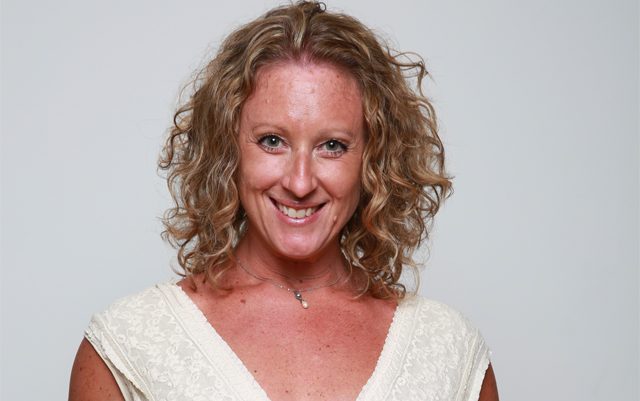The battle over marijuana prohibition is not a debate. It is not a discussion. If anti-prohibition forces lose, people go to jail and lose their freedom. That is a war.
That’s how drug warriors see it as well, going all the way back to President Nixon. They think cannabis users should lose their freedom because the drug warriors don’t agree with cannabis use.
In a war you need warriors, and the anti-prohibition side is fortunate to count Amanda Reiman among those warriors. As Manager of Marijuana Law and Policy at the Drug Policy Alliance, Amanda does battle every day with the forces that would continue the criminalization of cannabis.
According to the DPA’s website, Amanda “works to develop DPA’s marijuana reform work as it relates to litigation, legislative and initiative drafting, campaign strategy, policy advocacy, media relations, fundraising, and public education in the local, state, federal, and international jurisdictions in which DPA is active.” In other words, she oversees all facets of the DPA’s efforts when it comes to cannabis law reform.
I talked with Amanda recently and we discussed her career, Prop 64 in California, the progress of the cannabis law reform movement and more.
The Marijuana Times: What were you told about cannabis growing up?
Amanda Reiman: I grew up in a very conservative area of the country (Indiana) in the 1980’s and 1990’s. We were definitely part of the DARE generation. The Just Say No club was one of the largest clubs in my high school. We were definitely taught that drugs were bad, but I never entirely bought into it. Perhaps because my parents always stressed that we should think for ourselves. There was no internet back then, so I really didn’t have a chance to challenge those claims until I went to college and saw a different reality than the one I had been sold as a teenager.
MT: What led you to your work in cannabis activism?
AR: After high school I went to college at U. of Texas in Austin. There I met a group of people who were into the drug culture. It was here that I experimented with psychedelics and started using cannabis. As someone who was never too fond of alcohol, I found cannabis to be drug much more suited to my tastes. My friends in Austin had tastes for way more serious substances and some of them developed dependence issues. I was saddened to see the lack of real help available to them and the revolving door of the criminal justice system that they always seemed to get caught in. These were young, smart kids, and some of them didn’t make it. I knew then that I wanted to change the way society treats people who use drugs. So, I moved back to Chicago where my parents were living and enrolled in the University of Illinois to study psychology. That led to a master’s degree in social work, where I learned more about the racist nature of our current drug policies. I also joined up with a new group, Students for Sensible Drug Policy, in 1998 and that really lit my passion for drug policy reform. I moved to Oakland in 2002 to start the PhD program in social welfare at Berkeley, and still being a dedicated cannabis consumer, got my medical card and started visiting dispensaries. I knew we were on the verge of a major social shift regarding marijuana use and policy, so I decided to study this for my dissertation, and the rest is history!
MT: How did you become part of the Drug Policy Alliance?
AR: In 2010 I took a position with Berkeley Patients Group as their Director of Research and Patient Services. It was here that I started looking into the use of cannabis as a substitute for alcohol, prescription and other drugs. In 2012, BPG was shut down by then US Attorney Melinda Haag and they laid off 75% of their staff while they tried to re-open. At that time, DPA was looking to hire a policy manager for California. I had always been a huge fan of DPA and their work, and I was excited to have the chance to come on board and work on the policy change I had been seeking since my days as an undergraduate.
MT: What are your thoughts on what election day 2016 could look like for the cannabis law reform movement?
AR: This election is important for many reasons. For the cannabis movement, it is a chance to show that the 5 states that have legalized were not a fluke. That the country really is ready to move forward on this. That message will empower other states to move forward with changes to their marijuana policies. If we lose, opponents will message that as the country not being ready to move forward on this issue. That will set things back at the state and federal levels.
MT: What are your thoughts on Proposition 64 in California?
AR: Legalization is particularly important in CA. We are the 6th largest economy in the world with 38 million residents. If CA passes Prop. 64, it will add more people living in a legal environment than CO, WA, OR, AK and DC combined. It will also give power to the desires by some Latin American countries to legalize marijuana given the intense violence over cartel activity in these areas. However, it is not a magic bullet. After Prop. 64 passes there will be implementation work to do and legislative fixes to move through, but it will have happen in a legal landscape, so passing Prop. 64 is a necessary first step to getting what we want.
MT: Have you been surprised by the amount of progress the cannabis law reform movement has made in the last 5 years?
AR: Yes and no. Given that the propaganda perpetuated by the government is a house of cards, it is not difficult to topple it once people start learning the truth. The public is way ahead of policy makers on this issue because those in charge have financial and moral interests invested in a prohibition model. However, these people in power are aging out, and we are seeing those who grew up in the 30’s and 40’s being replaced by those who grew up in the 50’s and 60’s. This means a lot when it comes to their views of marijuana.
MT: In your view, what is the biggest misconception many still hold about cannabis?
AR: That it is, in essence, a harmful substance like alcohol or tobacco. That it is something that causes harm and we should try to reduce overall use as a policy goal. Cannabis can be a very healthy habit, and while policy goals should include the reduction of hazardous use, overall use rates are not indicative of harm, especially if that use is as a substitute for alcohol, prescription or other substances.
MT: If cannabis were completely legal and you weren’t needed at your job at the DPA, what kind of work would you be doing?
AR: I would be in the country running an animal sanctuary.
Without people like Amanda out there fighting, the cannabis law reform movement would cease to exist. The system needs to be changed and organizations like the Drug Policy Alliance are the hammers that we use to break down the walls of prohibition.
Freedom and liberty must always be fought for. As long as we have people like Amanda out there fighting, we know victory is in sight.







You have a brave heart, Amanda Reiman, dedicating so many years to this difficult task. You’re story is very inspiring, especially your principled opposition to the federal “marihuana” tyranny. I’m equally grateful to Joe Klare and The Marijuana Times for sharing a transcript of this interview.